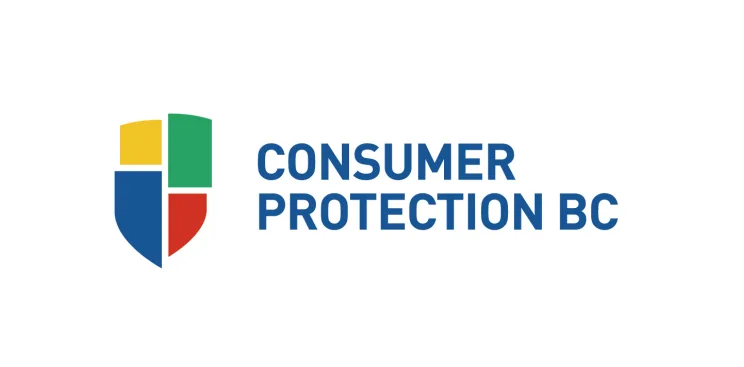
Is there a cooling-off period during which I can cancel any contract?
There are a number of ways that you or the other party can get out of a contract, whether the contract was in writing or not. If none of these ways to cancel a contract apply, you must carry out your part of the bargain. If you don’t, you are in breach of contract.
What you should know
If something you bought doesn't work or is not as advertised, you can cancel the contract. Under BC law, when you buy something, it is protected by a legal warranty. When you buy something from a business, it must meet these conditions:
it must be fit for the purpose you bought it for (that is, it has to function for its intended purpose)
it must be of merchantable quality (it has to work and can't be damaged)
it must be durable for a reasonable period of time
it must be “as described” (it has to match the seller’s advertising and any statements or representations made by the seller at the time of the sale)
These conditions apply regardless of whether the seller mentions them. They are in addition to any warranty the seller provides.
If any of these conditions are not met, you are entitled to cancel the contract, return the item and ask for your money back.
Learn more about the legal warranty and your options if there is a problem with a purchase.
With some purchases, you can change your mind during a cooling-off period.
A cooling-off period means a period of time where you can think about what you bought and change your mind. This is sometimes called a trial period. During this period, you can legally cancel the contract without paying any penalty. You don’t need to provide any reason for cancelling.
The length of the cooling-off period varies depending on what you are buying.
Under BC law, you have a cooling-off period when you sign a contract:
For a product or service you buy at home. For any direct sales contract, where you buy something in person at a place other than the seller’s permanent place of business, you have a cooling-off period of 10 days after you receive a copy of the contract.
To join a fitness club or yoga studio. For any continuing services contract, where you receive services on an ongoing basis, you have a cooling-off period of 10 days after you receive a copy of the contract.
For cellphone service. When signing a cellphone contract, you have a cooling-off period of 15 days after your cellphone service begins.
To lease a car. When leasing a car, you have a one clear day cooling-off period after you sign the lease.
To buy a newly-built condo. If you buy a home, you have a cooling-off period of three business days to cancel the contract. When you buy a newly-built condo, you have a cooling-off period of seven days after you sign the contract or acknowledge seeing the developer’s disclosure statement, whichever comes later.
If you decide you do not want to go ahead during the cooling-off period, you need to give the other party a written notice telling them this. Once they get the notice, you have no further legal obligations under the contract.
The number of days starts counting on the day after you sign the contract. For example, if you sign a cellphone contract on February 1, your 15-day cooling-off period starts counting on February 2 and goes up to and including February 16.
In providing the written notice, you can use any form of written communication — email, mail or courier for example.
If you do not give notice during the cooling-off period, you are legally bound by the contract.
A tip on providing notice
If you’re close to the end of the cooling-off period, it’s best to send the written notice in a way that provides proof it was given, such as by registered mail.
When a seller has a return policy
Some retail stores advertise that they allow customers to return any product purchased at the store. In law, this advertisement would probably be considered to be a term of any sale the store makes. You don’t need to sign anything for this term to become part of your sale contract with the store. You have the legal right to return the product for a full refund, even if what you bought is perfectly alright.
Alternatively, a seller may tell you when you buy something that you can return it. This promise becomes part of your sale contract. Again, you would have the legal right to return the product for a full refund.
Some retail stores advertise that the customer has a certain number of days to bring any goods back for a refund. If there is no time limit specified, the law would probably say that the customer has a reasonable time to ask for the refund. There is not a set definition for “reasonable time." It varies depending on, for example, what was bought and where it was bought.
A store may advertise that it accepts returns as long as the product is, essentially, unused. If the store doesn’t say specifically what “unused” means, the law would probably say that the product has to be resalable as new or near-new for the customer to be able to ask for a refund.
When a seller has an exchange policy
Some retail stores display a sign that says “No refunds — only exchanges." It is possible that if you buy something from a store that has a sign like that, you have the right to exchange it without giving any reason for doing so, even if what you bought is perfectly alright.
If you relied on the seller telling you something that turns out not to be true to talk you into signing a contract, you may be able to cancel the contract. This is called misrepresentation.
For example, if you bought a painting from Carl, and Carl falsely told you that the painting was an original (knowing it was only a copy), then you could ask to cancel the contract due to Carl’s misrepresentation.
The false statement must be one of fact, not a statement of opinion or promotional expression. For example, a seller saying that his car is worth $10,000 is expressing an opinion, but a seller saying that he paid $10,000 for it is making a statement of fact.
Claims in advertisements, such as “our toothpaste cleans whiter than white," are not regarded by law as representations of fact. They are seen to be promotional expressions.
Cancelling a contract for misrepresentation
If you want to cancel the contract because of misrepresentation, you must do this right away when you discover the misrepresentation. If you wait, you may lose this right.
Under BC law, a business is not allowed to use unfair practices to convince you to buy something. Unfair practices include someone making statements, verbally or in writing, or doing anything else that might deceive or mislead you.
For example, a business must not:
tell you that something is of better quality than it really is
tell you that something is only available for a limited time if that is not true
tell you that you are getting a special price or benefit when they are really offering the same thing that you can get somewhere else
Another type of unfair practice is when a business does something that is not right or reasonable (this is called unconscionable). Examples of unconscionable practices include:
taking advantage of any vulnerabilities that you may have that affect your ability to protect your own interests, such as any physical or mental disability, illiteracy or language difficulties
charging far more than what is reasonable for something
pressuring you to buy something that they know you cannot afford
If a business does something unconscionable, any agreement you signed is not binding on you.
If there is a fundamental misunderstanding between you and the party with whom you are contracting, either one of you can ask for it to be cancelled under the legal principle of mistake. The mistake might be:
who you are contracting with,
what’s in the contract, or
what the contract is about.
For example, if Fred understood that he was buying a painting from Carl, but Carl understood that he was only renting Fred the painting for a special party at his house, either Fred or Carl could ask for the contract to be cancelled because there was an important misunderstanding about what was being exchanged.
In most standard consumer contracts, this concept of fundamental mistake rarely arises. Although you may complain that you did not understand the papers you were signing, a perfect understanding of all the terms of a contract is not necessary to make it binding, as long as you understand the basic terms of the contract.
If you did not bother to read some of the “fine print” in a contract before you signed it, you will probably still be bound by the contract.
A contract can be cancelled if someone threatens you. For example, if someone threatens you with physical harm unless you agree to sell your car to them, this is not a valid contract. You did not enter the agreement voluntarily.
A contract can be cancelled if you do not have the mental capacity to enter into it. Mental capacity means that you are able to understand the nature of the contract and its effect on you.
You cannot enter into a contract if your mental state prevented you from understanding the result of your actions. For example, if you were completely drunk, under the influence of drugs, or suffering from severe depression, you could ask for the cancellation of any contracts you entered into while you were in that state.
“My flower shop had a contract to deliver 100 bouquets to a graduation ceremony. I was en route to the ceremony with the flowers, and a forest fire caused the highway to close. I couldn’t get through. I felt dreadful, as the organizers had to go ahead without flowers. But I was excused from my obligation under the contract because the fire was an 'act of God'."
– Cheryl, 100 Mile House, BC

If something beyond the control of a party prevents them from doing what they said they would, then they are excused from carrying out the contract.
For example, let’s say you hired a moving company to deliver a piano to your house for a wedding reception. If the company arrived six hours late, as the reception was ending, they would be responsible for breaking the contract. You wouldn’t have to pay them. But if a flash flood on the highway that afternoon prevented the moving company from delivering the piano, the flood would be considered an “act of God” which prevented them from carrying out their part of the agreement. You would still have to pay them for the piano delivery.
To be considered an act of God, the event must be outside of the party’s control. It must have been impossible for them to predict the event and prevent its negative impact. For example, if the piano company ran out of gas on their way to deliver the piano, that incident could have been prevented. The company would be held responsible for breaking the contract.
Each party to a contract is legally obliged to carry out their part of the bargain. If a party does not do what they said they would, they are in breach of contract.
The law offers three different solutions when a contract has been breached.
The contract can be cancelled. The parties are restored to their original situation.
The party in breach can be ordered to pay damages to compensate the other party for any loss suffered. The damages are designed to put the injured party in the same position as if the contract had been successfully performed.
The party in breach can be ordered to perform the contract. The party is basically told they have to do what they promised in the contract. This is an uncommon remedy only handed out by courts in specific circumstances.
Which solution applies in a given situation depends on what is wrong and what kind of agreement was made. For example, see how the solutions might apply if you have a problem with a purchase or if you're not happy with a service.
One factor is whether any breach relates to a condition in the contract. A condition is an essential term in the contract, a term that is so important that without it one or other of the parties would not enter into the contract. When a condition is broken, the contract can be cancelled.
When a non-essential term of the contract is broken, the injured party can recover damages but the contract cannot be cancelled.
Work out the problem
Keep your receipts! Make sure you have the signed contract. Read it carefully to understand what you’ve agreed to. You should also locate any receipts, emails or other correspondence, which may be essential to show that you have a valid contract.
If you have decided to cancel a contract, contact the other party and explain to them why you want to cancel. Tell them what you want.
Speak with them in person or over the phone. Keep notes of what you discussed.
Write a letter to the other party explaining that you are cancelling the contract. You can use one of our template letters for cancelling a contract, due to late delivery, poor work, or for other reasons.
In the letter, keep the tone professional and to the point. Explain why you are cancelling the contract. State when you would like the contract to end.
Show in the letter that you are following any rules set out in the contract for cancelling the contract. For example, if the contract says that the contract can be cancelled by either party with 30 days notice to the other, say that in the letter.
If the other party performed services under the contract, thank them for their service and wish them well.
If you want to be sure the other party receives your letter, send it by registered mail.
Keep a copy of your letter.
Common questions
Yes. If all parties to a contract agree that they do not want to go ahead as promised, they can agree to let one another out of the contract.
For example, let’s say you agree to sell your dining room table to Wendy. Before you deliver the table, Wendy changes her mind about buying the table because she doesn’t have the money to pay for it. Wendy may ask you to agree to let her out of the contract. You may prefer to find a new buyer who can pay, and you may agree to end the contract with Wendy.
However, you don’t have to do this, and nothing can be done to force you.
If your contract is cancelled, it is as though it never existed. The people involved must return to the situation they were in before the contract was entered into. To do this, they must give back to the other person everything they received because of the contract.
Let's say that Quinn sold her stereo to Thomas for $1,000. Sadly, the stereo turns out not to work as described. Thomas tells Quinn he wants to cancel the contract. Thomas must give back the stereo to Quinn and Quinn must give back the $1,000 to Thomas.
In the case of a contract for services, the person who performed services obviously cannot demand that the services be returned in the form of services. But that person can ask for payment of the value of any services performed before the contract was cancelled.
For example, let's say that Lin hired Grace to renovate her bathroom for $3,000. Lin then decided that she wanted to cancel the contract with Grace because she wasn’t pleased with the work that Grace was doing. When the contract was cancelled, Grace had finished half the work. Grace can ask to be paid $1,500, the value of the services performed up to the time the contract was cancelled.
For many consumer purchases, your receipt is often the only proof that you purchased a good from a particular store on a particular date. The law does not give you a broad right to return an item (i.e., cancel a contract) if you don't have a copy of your receipt.
It's tricky these days to keep all of our receipts — especially since everything is going digital. Remind yourself to snap a photo of your receipt on a smartphone and/or to set a reminder of certain deadline dates imposed by a store for returns or refunds.
Who can help

Consumer Protection BC
Assistance relating to certain types of consumer problems and contracts in BC.



